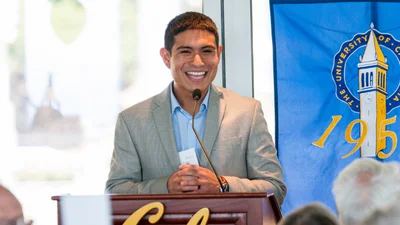Across the western United States, the Biden Administration has closed millions of acres of public lands for a wide variety of uses as part of the 30x30 agenda. For example, the Monument Management Plan for the Grand Staircase Escalante National Monument closed 1.2 million acres of land to motorized access.
As the Executive Director of the BlueRibbon Coalition, I work on behalf of hundreds of thousands of members to preserve their recreation access to public lands. When we shared information online about these newly announced closures, those who supported the closures appeared in the comment threads to remind our community that they can still walk into the area.
This would be like closing every road in the state of Delaware, but then assuring the people who live there that they can still walk freely throughout their state. That’s how big 1.2 million acres is.
To utilize public lands, they need to be accessible. At BlueRibbon Coalition, we have challenged public land closures in court for their discriminatory effects against those with disabilities. Judges have ruled that if the public lands are closed to everyone, then it isn’t discriminatory against the disabled. These rulings have ignored the reality that public lands are almost never closed to the able-bodied that don’t require motorized or even mechanized access (wheelchairs are considered to be mechanized, and are not allowed on trails in congressionally designated wilderness areas). Rather than deal with a controversial issue that is causing harm to countless Americans, a federal judge in California reductively misinterpreted our concerns by deciding that land managers shouldn’t be required to build handrails at the top of mountains.
No one is asking for our land managers to be required to allocate limited resources towards building infrastructure where it isn’t needed. All BlueRibbon Coalition members want is for federal land managers to not close, decommission or obliterate infrastructure that already exists that happens to be providing valuable public benefit to an important, protected class of American citizens.
Fortunately, Senator Mike Lee (R-UT) introduced the “Outdoor Americans with Disabilities Act,” which would require land managers to analyze the discriminatory effects of restricting motorized access on public lands. By requiring land managers to maintain a reasonable amount of road density on public lands, the legislation would prioritize the needs of disabled Americans through the planning processes already required by the National Environmental Protection Act. In most cases, land managers will be able to meet these requirements just by preserving access to public lands that already exist.
One of our strongest advocates for protecting access for the disabled on public lands is Chelsie Carr. As a teenager, she was diagnosed with a rare form of bone cancer. Years later she is a vibrant and healthy woman, but even though she can walk, she must avoid activities that could lead to injury. Even casual hiking is too big of a risk, which means she is unable to continue enjoying one of her favorite ways to connect with nature and explore the outdoors.
With the help of a 4WD Jeep, she is able to access the remote backcountry areas that used to be her reward for a day spent on a hiking trail. While it is true that driving a Jeep on an existing, maintained off-roading route can cause negligible environmental impacts, it is absurd that federal land managers are prioritizing dirt over the needs of disabled Americans like Chelsie.
At BlueRibbon Coalition we have launched a special project called Operation Accessible to raise awareness of the harmful effects of motorized recreation closures, and to encourage everyone to support legislation that will protect the needs of disabled Americans as they explore the treasures of our public land system.









